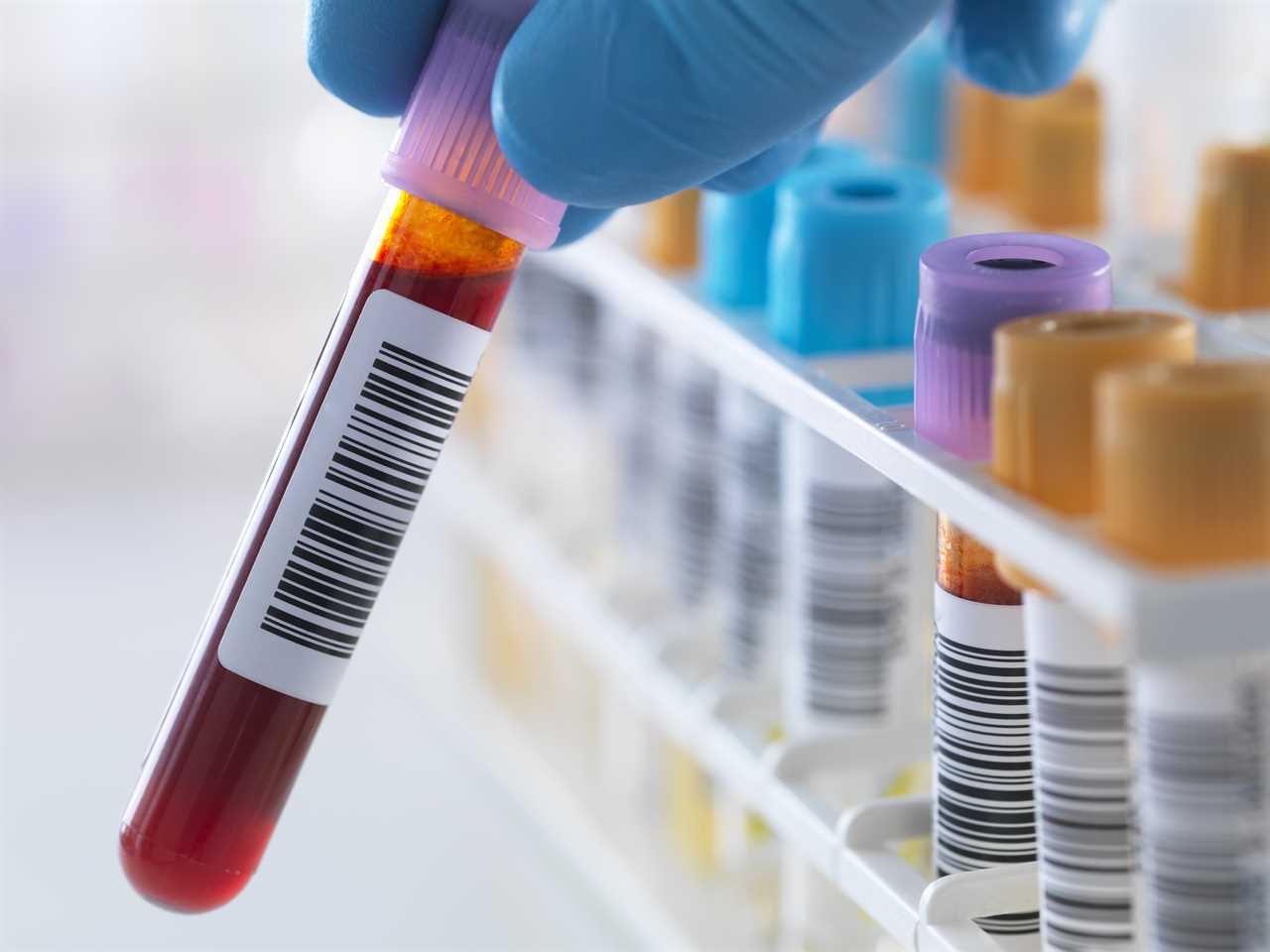A NEW prostate cancer test could spare men from needless biopsies, researchers have said.
The simple blood test is 94 per cent accurate and could lead to more cases being detected.

In the UK there are around 12,000 prostate cancer deaths each year and a new test could help pick up the illness early on
Researchers at Oxford BioDynamics, in collaboration with Imperial College and the University of East Anglia (UEA) developed a new chromosomal test.
The test can pick up signals of cancer and combine it with the regular PSA (prostate-specific antigen) test.
PSA is a protein made only by the prostate gland.
Some of it leaks into your blood, but how much depends on your age and the health of your prostate, the NHS states.
The test is usually done at a GP surgery – but it isn’t perfect and won’t detect all prostate cancers.
In the UK there are around 12,000 prostate cancer deaths each year and around 52,000 cases according to Cancer Research UK.
It’s hoped that the new test will be able to detect cases early on.
Dr Jon Burrows, chief executive at Oxford Biodynamics, said: “There is a clear need in everyday clinical practice for a highly accurate blood test that can screen men for prostate cancer and accurately identify those at risk, while sparing those who up to now would be subject to unnecessary, expensive and invasive procedures.”
A pilot study of 147 patients evaluated the new test, called PSE, and found it significantly improved detection of the disease.
All the men in the study had prostate cancer and the test was 94 per cent accurate.
The next stage of research will be to use the test on a group of men where the cancer status is unknown.
The team wrote: “This new PSE test is accurate, rapid, minimally invasive and inexpensive.
“If successful in larger trials, it may significantly improve prostate cancer diagnosis.”
Professor Dmitry Pshezhetskiy, from UEA’s Norwich Medical School said that PSA tests are some of the most used in the UK, alongside physical exams and MRIs.
However, he added that these results can be unreliable, prompting medics to develop a new, more accurate test, the PSE.
“When tested in the context of screening a population at risk, the PSE test yields a rapid and minimally invasive prostate cancer diagnosis with impressive performance.
“This suggests a real benefit for both diagnostic and screening purposes,” he added.






